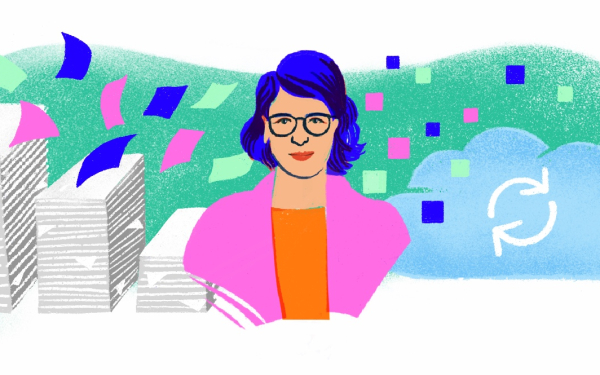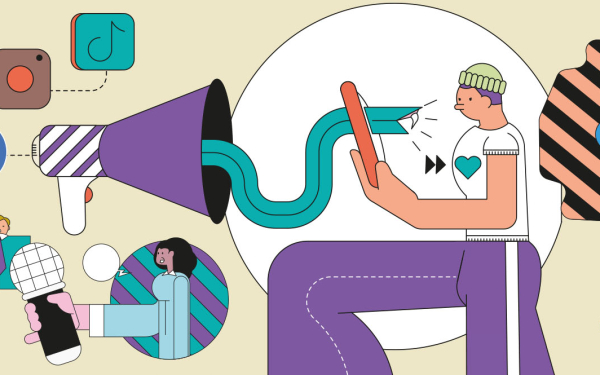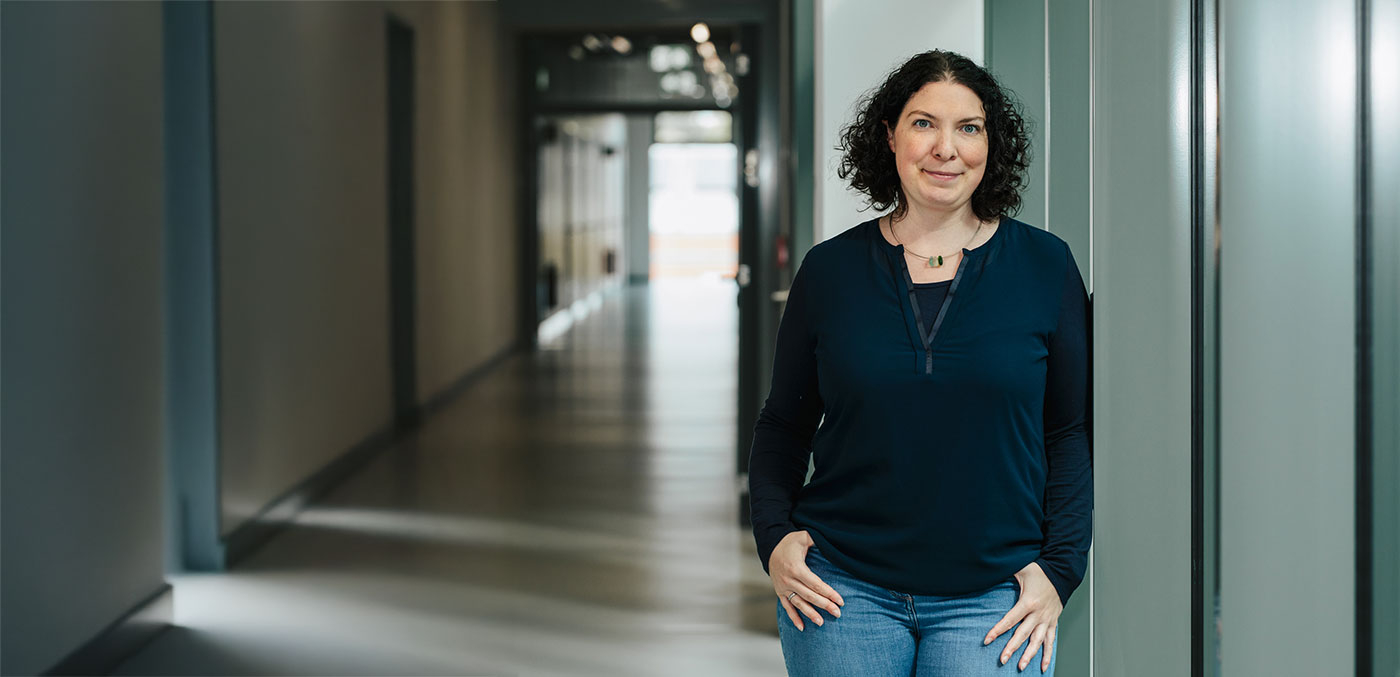
Universität Bremen/Matej Meza. Hintergrund mit KI (Photoshop) nach links erweitert
Marine scientist Dr Christina Roggatz from the University of Bremen is leading her own team for the first time – and through her work wants to arrive at a better understanding of climate change. Here she gives us an insight into her everyday life as leader of a junior research group.
‘The biggest difference from my past situation? I'm no longer just involved in research: I now lead my own team,’ says Dr Christina Roggatz. After completing her doctorate and working as a postdoc, she is now leading her own research group for the very first time. A Freigeist Fellowship from the Volkswagen Foundation enables her – like many other young researchers – to build her own team early in her career and pursue an independent research agenda.
‘My interdisciplinary team comprises doctoral students, technical assistants and students of biology and chemistry. This means that I am not only responsible for the scientific aspects of my work, but I now also take care of personnel and organisational matters,’ says Roggatz.
Small ecosystems, great impact
Despite these new leadership responsibilities, research remains at the heart of her work. She is investigating how small processes in the marine environment can have global significance. Roggatz's research focuses on fundamental questions of marine biology and chemistry: she wants to learn more about how marine organisms, such as algae and bacteria in biofilms, communicate with each other via signalling substances.
Many people are amazed that bacteria in the sea play such an important role for life on planet Earth.
Over the centuries and in context of their daily interactions – these biofilm communities have learned to cope with very different environmental conditions, such as fluctuating sea temperatures and pH values. But does it follow that communication within the community of microalgae and bacteria will also be resilient to climate change? This is one of the questions Roggatz would like to explore in more detail.
Between the lab and the desk
Christina Roggatz greatly appreciates the excellent research environment and the special sense of community at the University of Bremen. ‘I benefit greatly from the scholarly exchange and cooperation within the university, but also beyond – because Bremen is one of the most important locations for marine research in Germany, with institutions such as MARUM, the Max Planck Institute for Marine Microbiology, the Leibniz Centre for Tropical Marine Research and the Alfred Wegener Institute in Bremerhaven.’ She says ‘Bremen is characterised especially by the interdisciplinary spirit that is lived here.’ For example, she is involved in the new CONCENTRATE Transregional Collaborative Research Centre at the Universities of Greifswald and Bremen and acts as deputy spokesperson for the UFT – Centre for Environmental Research and Sustainable Technologies.
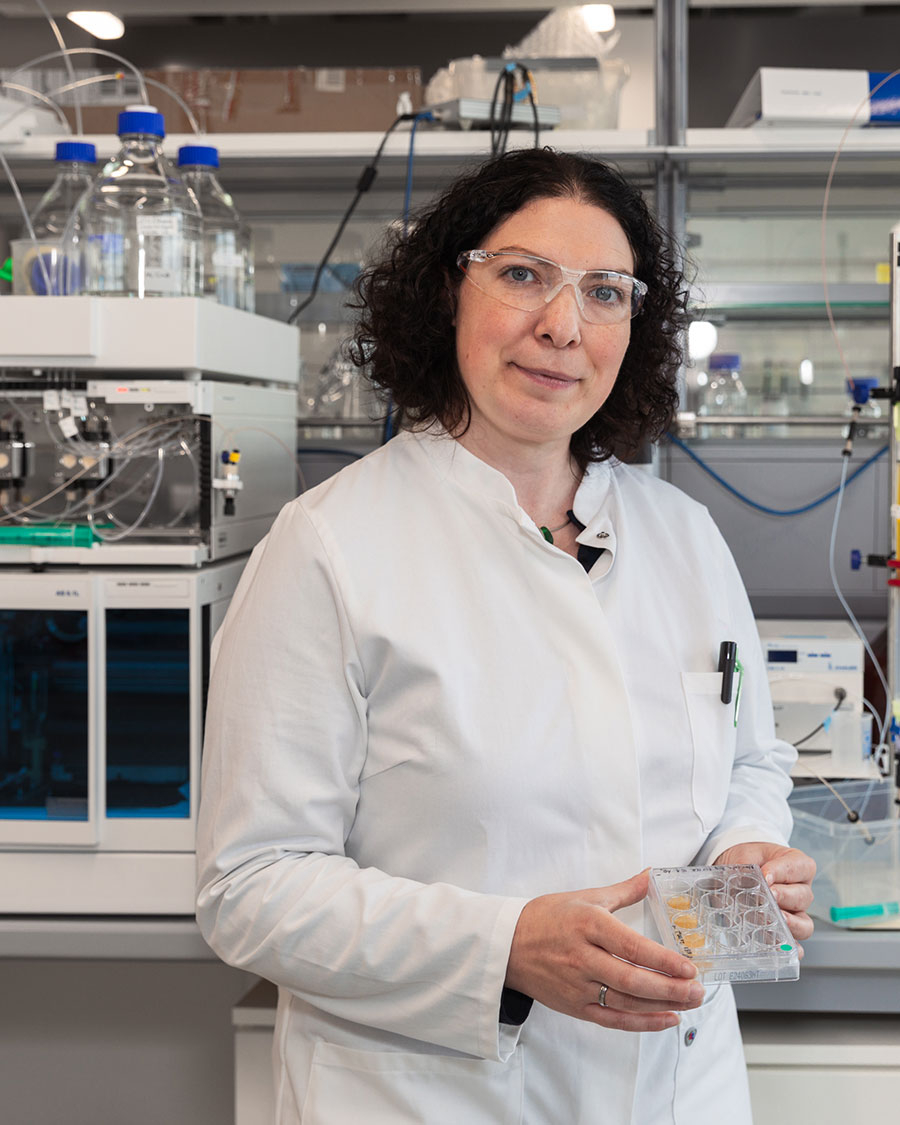
In her research, Christina Roggatz is investigating, among other things, whether the community of microalgae and bacteria in the sea might become resilient to climate change.
‘Not only does the good cooperation among colleagues help us a lot, we also receive excellent support from the administration,’ emphasises Roggatz. ‘Whether in the context of, human resources, purchasing or other areas of administration, our concerns never fall on deaf ears. There is no such thing as “that’s not my problem” or “got no time” at the University of Bremen.’
Roggatz also wants to foster the same spirit of cooperation in her working group, particularly when it comes to supporting students and doctoral candidates. ‘It's great to see how students grow with their work,’ says Roggatz. ‘For example, they may initially be unsure whether our interdisciplinary topic is really the right thing for them, but then they begin to get a taste for it and enthusiastically start planning their own projects.’
In the feedback received from the courses she teaches, Roggatz is increasingly conscious of how much it means to female students that they are able to work with female researchers. During her own career, she recalls, there were very few female role models occupying leadership positions in research. ‘That makes it all the more gratifying that today female students can see there are also female scientists in the area of marine research, especially in chemistry, and how this can motivate them to pursue an academic career,’ says Roggatz.
Hope in times of climate change
In addition to other researchers, students, and doctoral candidates, Roggatz also wants to reach out to people outside the university. For example, with public lectures throughout Germany and her own module at the Bremen Children's University, where children have the opportunity to examine algae and bacteria under a microscope. ‘Many people initially associate bacteria with something negative, such as disease, and are then amazed that bacteria in the sea play such an important role for life on planet Earth,’ explains Roggatz.
At the same time, the researcher wants to give children and their parents a new perspective on climate change. She often finds that adults approach the topic with resigned apathy: the belief that they can do nothing about it anyway is widespread. With her research, Roggatz not only wants to inspire and reach out to children, but also to motivate them to confront their parents and other adults with exciting facts about our oceans – and to show that science can indeed make concrete contributions to combating climate change.
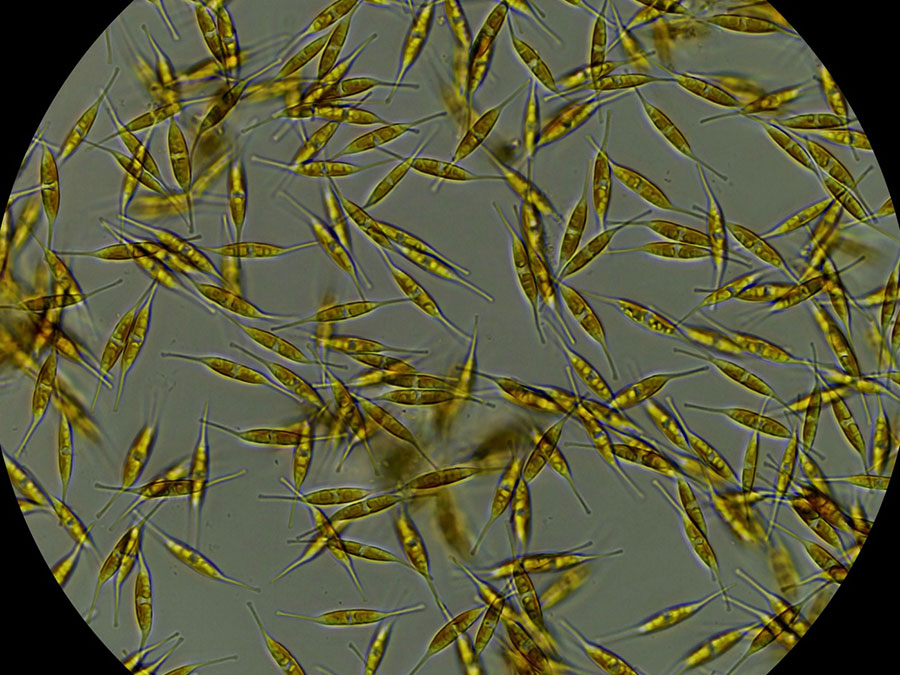
At the Bremen Children's University, children can view algae and bacteria under a microscope.
Conducting her own research, guiding others, and developing strategies for dealing with climate change through her work – Christina Roggatz wants to continue doing all of this in the course of her future career and is therefore aiming for a professorship. ‘Of course, we cannot stop climate change on our own,’ she says. ‘But we can do our part to understand and tackle it – through our research, or by encouraging and empowering others to make their own contribution.’
A longer, slightly modified version of this article appeared in the University of Bremen's online magazine up2date.

